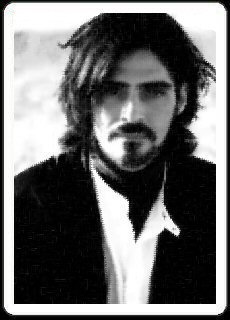|
Ulrich von Bek
KNOWN ABILITIES Beyond the well-known fact that he has walked the Pattern, little is known about Ulrich's strengths and weaknesses.
ATTITUDE AND GOALS While he has tried to put "foolhardy crusades" behind him he would be the first to point out that helping complete strangers to help reclaim a homeland that they claim is also his birthright probably counts as just that. He did owe them for allowing someone they did not know to walk the Pattern on the say-so of someone who was at that time not available for comment, so he now tries to act only for himself where possible. He has been known to help those who ask, but would prefer to explore Shadow once the opportunity to slip away presents itself. He prefers to present himself as a gentleman only interested in having a good time, but he does have a fairly wide moral streak. He has wondered on several occasions how the land that presents itself as the One True Realm can be based on such an unfair system of government. Many monarchies, such as the one deposed in the French Revolution, are based on the premise that the nobility are superior to the common man. In a land where they really are superior, there is not, fortunately for ex-Revolutionaries, much scope for revolution...
HISTORY Born in Bek, Saxony, in 1758, the second son of the Graf von Bek. The family is famous in Germany for it's library and family legends involving the Grail. Ulrich's true father is a certain Prince Benedict of Amber. Neither has been particularly forthcoming on the details of the matter, at least to others. Went to university in Magdeburg when 17, studying natural mechanics and philosophy, but gained a reputation for drinking and wenching instead of working. In 1777 he was appointed the secretary to the Saxon ambassador at the court of Empress Catherine in St. Petersburg, presumably in an attempt to quieten him down with responsibility. There he served for three years, working and enjoying himself in equal amounts, until he was arrested for treason; he was implicated in a murder plot against Catherine. In fact, he was used by Catherine in a plot to discredit and remove a Prince Pushkin, a dangerous man seeking to rise to the highest position in the empire. He escaped to Siberia, however, and lived with the Tartars for two years, learning from them and having to prove every day that he was as savage as they. He is still wanted for treason in Russia even now. For the next six years, starting in late 1782, he travelled around Europe and even to America, visiting places and investigating the technological marvels he came across on his travels, as well as continuing to enjoy himself. He was excommunicated in Rome, has bad debts in Vienna and was branded a libertine in Genoa. He sampled several 'secret societies', such as the Rosey Cross (Rosicrucians) and the Orange Lodge, but found them to be too introverted and found the 'supernatural' to be uninstructive and very, very dull. It was during this period that he developed his interest in socialism and human rights, as espoused by several leading cultural philosophers of the time. In mid 1789 he renounced his rank, family and privileges to join the Revolution in France, along with a number of friends. There he became a small but important part of the revolutionary movement, eventually becoming a Deputy of the governing body of France, and part of the Moderate movement. As time went on, however, he found the lofty ideals of the past were being replaced by the greed, paranoia and hatred of the real world. More and more innocents were being slaughtered by the Mob, and more vile atrocities were committed every month. Eventually, when few of his old friends remained (the rest having been executed, imprisoned, emigrated or simply stayed away from a suspected Royalist - he and the other Moderates had begged for Queen Marie Antoinette to be exiled rather than executed for fear of angering her father, the king of Austria), he decided it was time to prepare to leave France. Barely a few hours ahead of the Citizens bearing his arrest warrant, he fled from Paris disguised as a messenger, on his way to Switzerland. On the way he encountered a one-time Revolutionary comrade, Montsorbier, and had to flee when he was recognised. By luck, he discovered a strange horse which he made off on when his was slain; the horse's owner, one Andreas of Amber, sought him out...
|
